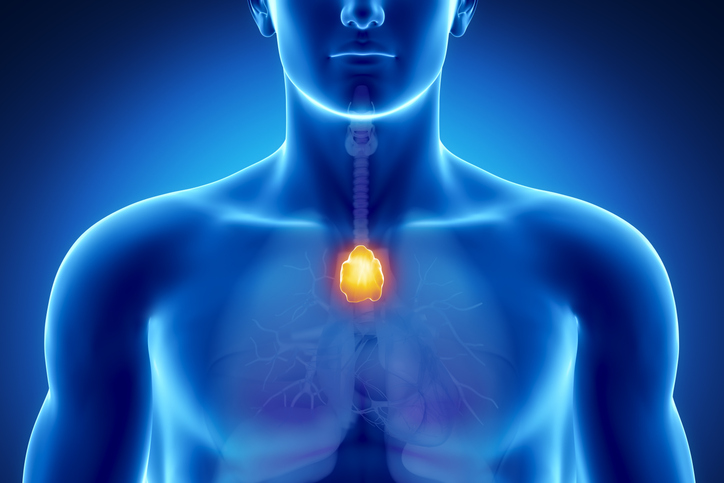A new cell culture model for MRV could offer insights on the development of autoimmunity after neonatal infection.
Murine roseolovirus (MRV), which is closely related to human roseoloviruses HHV-6 & HHV-7, has been shown to induce thymic atrophy, disrupt the development of central tolerance and cause autoimmunity after neonatal infection in mice (Bigley 2022).
A team from Washington University in St. Louis, led by Dr. Tarin M. Bigley, reports detailed studies of thymocytes in BALB/c mice using single cell RNA sequencing (scRNAseq) analysis following neonatal infection by MRV. This allowed them to study the tropism of MRV in the thymus. It also allowed them to determine how various thymic cellular processes were affected by neonatal MV infection. Using this tropism data, they then established the first cell culture system susceptible to MRV infection in vitro, aiding in the more detailed study of the sequence of events over time, following infection.
MRV infection induced major shifts in transcription of thymocyte genes involved in inflammation, cell differentiation and cell cycle. The more interesting results included:
- Double negative (CD4-/CD8-), double positive (CD4+/CD8+), and CD4 single positive thymocytes, as well as medullary thymic epithelial cells were infected by MRV in vivo
- Viral infection increased type II IFN, proteasome degradation, translation, apoptosis, TNF signalling, mRNA processing, and IL-7 signaling
- Differences in pathways that contribute to CD4-/CD8- cell differentiation based on viral infection vs control (Figure 1, below)
- MRV infection is associated with changes in the transcriptome of non-thymocyte cells with crucial thymic functions (e.g., cortical/medullary thymic epithelial cells, dendritic cells)

Figure – Heat map of transcriptome relevant to CD4/CD8 differentiation in thymus populations infected with MRV vs. controls (Mock infected).
This lengthy and highly detailed report will provide valuable information for those interested in the possible role of human roseoloviruses in the establishment of central tolerance and autoimmunity.
HHV-6 has also been proposed to play a role in a number of autoimmune diseases including systemic sclerosis (Soffritti 2024), type 1 diabetes (Makino 2024), autoimmune thyroiditis (Caselli 2012, Sultanova 2017, Sultanova 2022) and multiple sclerosis (Grut 2024).
Read the full article: Belean 2024

